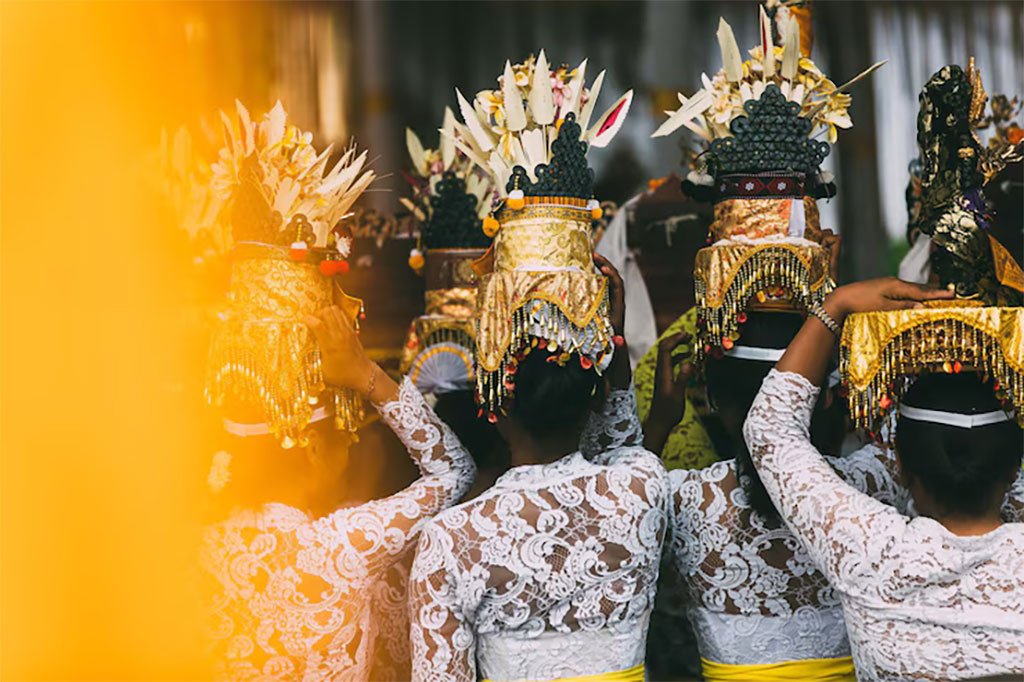Bali is renowned worldwide for its stunning beaches, vibrant nightlife, and luxurious resorts. However, for those willing to venture beyond the typical tourist traps, the island offers a deep, authentic experience of its rich culture and traditions. Exploring Balinese culture beyond the tourist spots means immersing yourself in its ancient rituals, arts, daily life, and spiritual essence. In this guide, we’ll uncover how to connect with the heart and soul of Bali in ways that most visitors miss.
1. Understanding the Essence of Balinese Culture 🌀
Before diving into your adventure, it’s important to understand what Balinese culture truly represents. It is a unique blend of Hindu religious practices, traditional arts, and communal harmony. The island’s people, known as Balinese, live with a deep sense of spirituality that permeates their daily activities—from crafting intricate offerings to performing age-old ceremonies.
Balinese culture is closely tied to Tri Hita Karana, a philosophy emphasizing the harmony between humans, nature, and the divine. To experience Bali beyond the surface, you must embrace this interconnectedness.
2. Visit Traditional Villages to See Daily Life Unfold 🏡🌾
Many tourists never venture far enough to witness the everyday life of Balinese villagers. Places like Tenganan, Trunyan, and Sidemen offer glimpses of communities preserving their customs and lifestyles unchanged for centuries.
In these villages, you can observe:
- Rice farming with subak irrigation systems 🌱💧
- Handicraft making such as weaving and wood carving 🧵🪵
- Daily offerings and small temple ceremonies at family compounds 🙏🌸
Engaging with locals respectfully and sometimes joining workshops can deepen your appreciation of their cultural practices.
3. Participate in a Traditional Ceremony or Festival 🎉🕉️
Bali’s calendar is filled with vibrant ceremonies and festivals, many of which occur in small temples and village squares away from tourist hubs. These events are immersive cultural experiences showcasing music, dance, rituals, and community spirit.
Notable ceremonies include:
- Galungan and Kuningan: Celebrating the victory of good over evil, involving offerings, dances, and family gatherings.
- Nyepi Day: The Day of Silence marking the Balinese New Year, where the entire island stops, creating a surreal atmosphere.
- Odalan: Temple anniversary ceremonies featuring gamelan music and sacred dances.
Attend these with an open mind, dress modestly, and observe respectfully to witness the spirituality woven into everyday life.
4. Explore Local Art Forms and Workshops 🎨🎭
Balinese arts are not just for display; they are a living tradition. Instead of visiting crowded galleries, look for smaller workshops or artist villages like Ubud, Celuk, and Mas where you can meet artisans crafting paintings, silver jewelry, or wood carvings.
Try:
- Learning batik fabric painting or ikat weaving 🎨
- Participating in a gamelan music class 🥁
- Watching or even joining a traditional dance rehearsal 💃
This hands-on approach allows you to see the meticulous effort behind the beauty and understand the cultural narratives they portray.
5. Savor Balinese Cuisine in Local Warungs 🍛🌶️
Tourist areas often serve generic versions of Balinese food. To truly taste the culture, seek out warungs—small family-owned eateries scattered throughout villages and towns. Here you’ll find authentic dishes prepared from local recipes handed down generations.
Must-try dishes include:
- Bebek Betutu: Slow-cooked duck with traditional spices 🦆🔥
- Lawar: A spicy mixture of vegetables, coconut, and minced meat 🥗🌶️
- Nasi Campur: Mixed rice with various side dishes 🍚🍲
Eating at local spots also opens the door to conversations with residents, enriching your cultural insight.
6. Experience Balinese Spirituality and Healing 🌿🕉️
Balinese spirituality extends far beyond temples. The island is home to balian (traditional healers) and pemangku (temple priests) who perform rituals to restore harmony and health.
You can:
- Join purification ceremonies at sacred springs like Tirta Empul 💧
- Experience a traditional healing session involving herbal remedies and spiritual chants 🌿✨
- Meditate or participate in yoga classes held near ancient temples or rice terraces 🧘♂️🌾
Such experiences connect you with Bali’s deep-rooted spiritual wisdom beyond the usual tourist itinerary.
7. Trek Through Sacred Nature Trails and Rice Terraces 🥾🌄
Bali’s natural beauty is inseparable from its culture. Trekking through lesser-known routes in areas like Jatiluwih (a UNESCO rice terrace site) or the hills of Munduk reveals a landscape shaped by centuries-old farming practices and spiritual respect for nature.
Along the trails, you might find:
- Small shrines nestled among the fields 🛕
- Farmers working with traditional tools 🌾
- Local markets selling fresh produce and handmade crafts 🍅🧺
Walking these paths offers quiet moments to absorb the rural rhythms of Balinese life.
8. Engage with Balinese Language and Stories 📚🗣️
Language is a gateway to understanding culture. While many Balinese speak Indonesian or English, learning a few Balinese words can deepen your connection. More importantly, listen to stories and myths shared by elders, which often explain local customs and beliefs.
Ask about:
- Folklore like the legend of Barong and Rangda (good vs evil spirits) 🐉👹
- The significance of various temple statues and carvings 🛕🦚
- Local customs surrounding life events such as weddings and cremations 💍🔥
These narratives add layers to your cultural experience.
9. Volunteer with Local Communities 🤝🌍
One of the most meaningful ways to engage is by volunteering. Many rural areas welcome visitors willing to help in education, conservation, or cultural preservation projects. This allows for genuine interaction and mutual learning.
Volunteer options include:
- Teaching English in village schools 📚
- Assisting with organic farming or environmental programs 🌱
- Helping in cultural centers to promote Balinese arts and traditions 🎭
Such involvement can transform your visit from observation to active participation.
10. Respect and Embrace Local Etiquette 🙇♂️🙏
Finally, immersing yourself in Balinese culture requires respect. Dress modestly when visiting temples, always remove your shoes before entering sacred spaces, and never touch people’s heads (considered sacred).
Additional tips:
- Avoid public displays of affection
- Use your right hand for giving and receiving
- Observe silence during prayer times
Respectful behavior opens doors and hearts, enriching your cultural journey.
A Deeper Bali Awaits 🌞🌿
Experiencing Balinese culture beyond the tourist spots is about patience, openness, and genuine curiosity. It involves stepping away from the beach clubs and crowded markets and immersing yourself in everyday life, ancient rituals, and the natural landscape that shapes the island’s identity.
By exploring traditional villages, attending ceremonies, participating in arts, savoring local flavors, and connecting with spiritual and communal traditions, you gain a profound appreciation of Bali’s soul—a treasure far richer than any postcard image.









